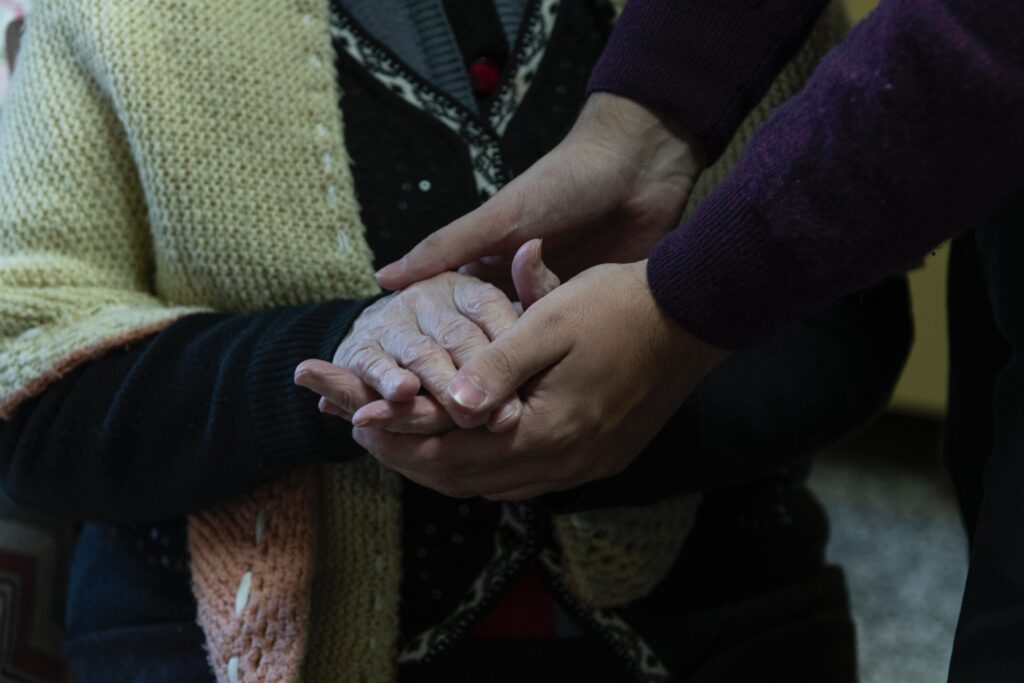A Hope for the Helpers Blog
by Dr. Jason Kanz
“Mom, would you be willing to sit down with me and begin to talk about future planning?” I put the question out there, uncertain about what she might think. I was relieved when she responded positively. Even so, numerous emotions flooded in. In the introduction to SoulTalk, Larry Crabb wrote, “We don’t ask the hard questions until we have to.” I don’t know if we had to begin the conversation, but I didn’t want to have it.
As a clinical neuropsychologist who often works with older people, I routinely have difficult conversations with patients and their families about the future, discussing issues such as finances, healthcare, and safety. But this was my mom. Even though we have a great relationship and can talk about many things, suddenly this felt difficult. Although I knew the benefits of talking about the future, actually starting the conversation weighed heavily upon me.
For context, I turned 50 last year and am increasingly aware of my age. My parents had me when they were young, so my mom is almost 20 years older than me. For most of my childhood, it was just the two of us. I am her only child and live nearly four hours away from my stepdad and her. She remains sharp, and there is no imminent pressure to make drastic changes, but I wanted to start talking about these topics proactively rather than reactively.
My wife, who is far better at details than I am, began to gather resources. She printed out checklists of topics to discuss, such as wills, health conditions, and names of doctors. She made copies for both my mother and stepfather of the healthcare and financial power of attorney forms for our state in case they had not done these yet. She put these forms in two tabulated binders—one for them and one for us. Tasks like these are an essential part of the process, but they leave deeper places untouched.
In the days leading up to my visit with them, I would awaken every morning around 3:30, filled with uncertainty. What was I missing? How do I introduce these topics? Despite my professional background and Heather’s organizational skill, I felt inadequate and afraid. Obviously, this conversation was about much more than whether or not my mom had completed some papers.
In SoulTalk, Dr. Crabb shared a model for engaging in meaningful conversation with others that touches another person’s soul. One of the things I most appreciate about this model is how it seeks to understand the movement of the Spirit in the other person and maintains awareness of what is stirring in me.
Not surprisingly, talking about end-of-life issues with those we love touches something deep in most of us. Entering this conversation stirred many thoughts and emotions for me. Growing up, my mom seemed invincible. As a single mom, she worked hard in a factory building tractors, and in the summers, she would help my uncle on the farm, driving them in the fields. I knew her to be a strong, independent woman. But now, at 70, she needs help sometimes. She is not invincible. Eventually, she will die, and this conversation forced me to think about not only her death but my own.
I am discovering that, for me, there are questions even deeper than death. Does how I live and relate help others—my mom, my wife, my children—to know their belovedness? What has been the story God has been telling through my first 50 years, and how does that story intertwine with my parents and their parents? Have I loved well? Have I attempted to dance in time with the Trinity’s movement even when uncertain of the steps? Even in discussions of topics like death, have I “poured something alive into the soul of another?”
Pay attention to what stirs within you, but have difficult conversations. Take care of the details, but recognize the deeper story. It is in these deep places where Spirit-honoring relationships come to life.
Jason Kanz is a clinical neuropsychologist in professional practice. He is the author of four books and the editor of Living in the Larger Story: The Christian Psychology of Larry Crabb (2019). He lives in Eau Claire, Wisconsin, where enjoys time with his wife, children, and new granddaughter.
